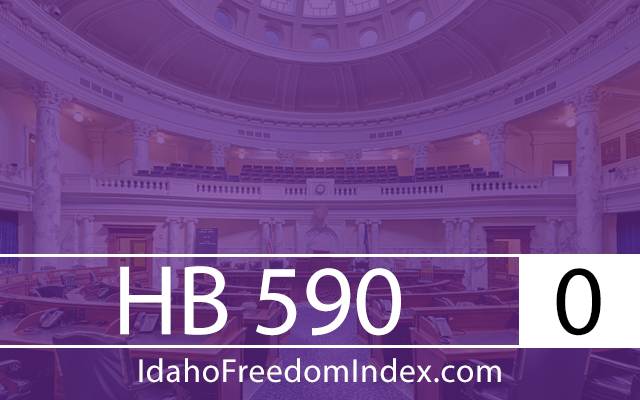


Bill description: HB 590 would establish a new scholarship program for private schooling expenses.
Rating: 0
Does it transfer a function of the private sector to the government? Examples include government ownership or control of any providers of goods or services such as the Land Board's purchase of a self-storage facility, mandatory emissions testing, or pre-kindergarten. Conversely, does it eliminate a function of government or return a function of government to the private sector?
The Guided Education Management (GEM) scholarship program established through HB 590 would create a mechanism for individuals and institutions to put money towards private education. GEM pulls together four groups in this process: the State Board of Education (SBOE), the scholarship granting organization, the education services provider, and the eligible student. This program would work by having the SBOE designate up to 3, non-profit, scholarship granting organizations who would be recipients of funding from “private contributions, gifts and grants and any other sources permitted by law.” No general fund or public money is transferred to scholarship granting organizations by this bill. These scholarship granting organizations would then be responsible for distributing these monies to qualified education service providers for private education expenses. These funds be would segregated from other funds, established as a GEM fund. Payments from the GEM go directly to the education services provider and not the parents of the eligible students. Students, who meet the eligibility criteria, would apply, on a first-come basis for a GEM scholarship. The GEM scholarship amount is limited to the average state per-pupil funding in any given year, with certain exceptions.
Eligible expenses would include but are not limited to:
By allowing for non-public monies to go towards private schooling, HB 590 would establish a new avenue for some students to obtain their education through private means, rather than through the public schooling system. Recipients may not enroll full time in a public school.
(+1)
Does it increase government redistribution of wealth? Examples include the use of tax policy or other incentives to reward specific interest groups, businesses, politicians, or government employees with special favors or perks; transfer payments; and hiring additional government employees. Conversely, does it decrease government redistribution of wealth?
The monies distributed through the GEM scholarship program could only go towards students under the age of 19, and have been continuously enrolled in an Idaho public school for the prior school year, and meet one of the following criteria:
By only allowing the funding for these GEM scholarships to go towards these students, HB 590 would give preferential treatment to these student populations.
(-1)


